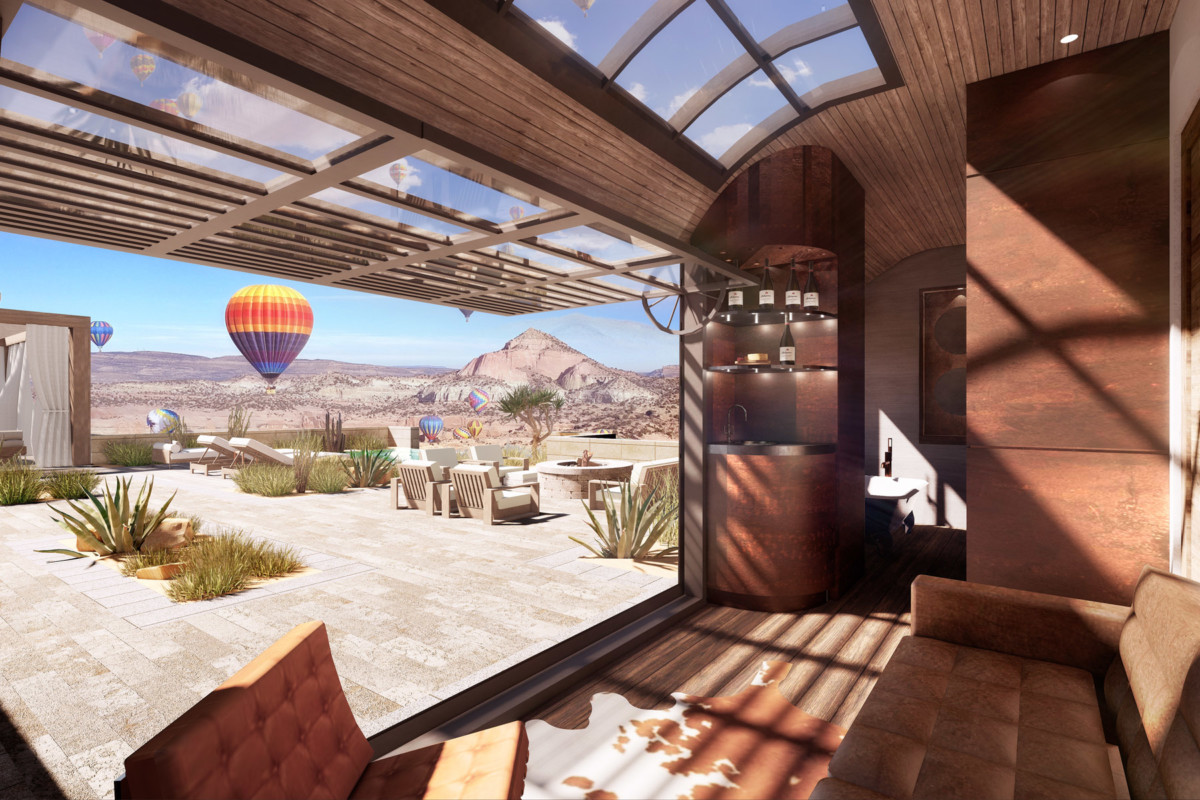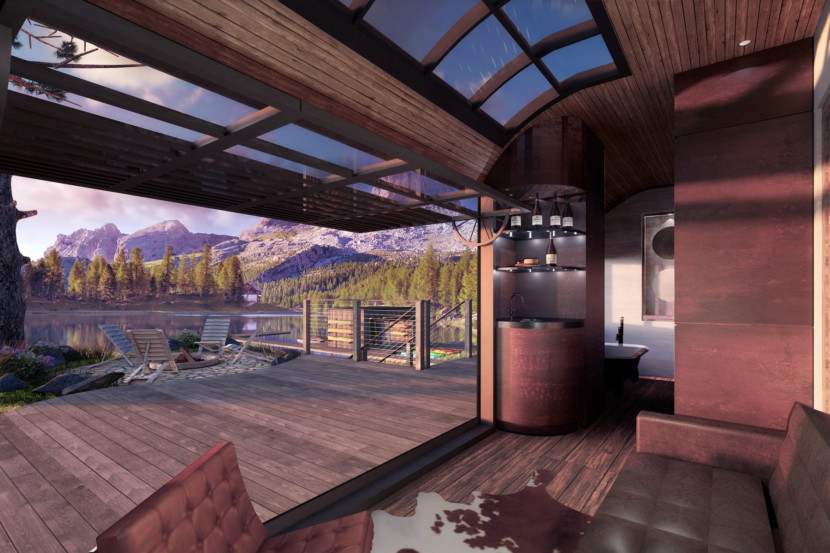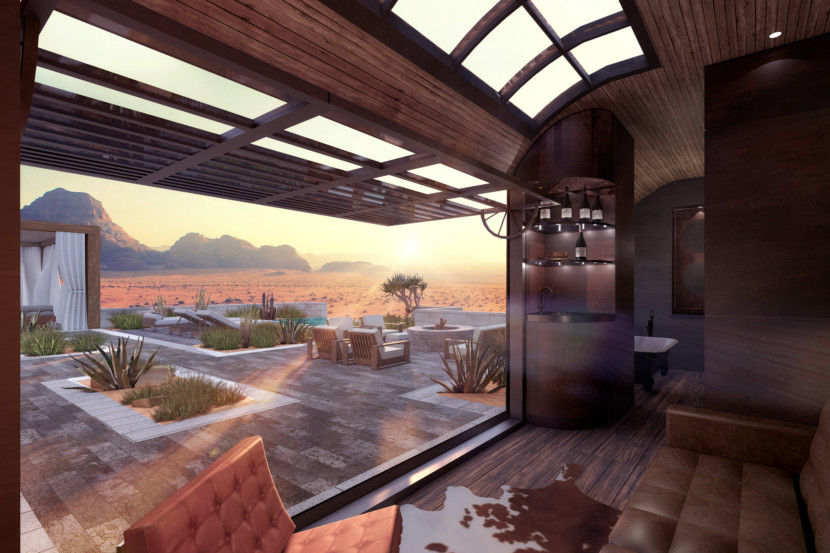The New Elements of Hotel Design in a Hi-Tech World | Designing for a Digital-Physical World
An upgrade in digital infrastructure will revolutionize the guest experience and allow hoteliers to adapt to rapidly changing technologies. Constant, fast wi-fi connection will be imperative. In a recent survey completed by ALICE, they reported that 34% of guests said that outdated technology was one of the most frustrating experiences in a hotel stay. Today’s consumer is accustomed to the digital world and they want and expect physical spaces to reflect that. These upgrades could be the catalyst for a rise in multi-generational business travel – the entire world has adapted to a virtual way of life, so, why not take your family along on a business trip? The real beauty of technology is that it gives the consumer the option to tailor their trip to suit their needs.
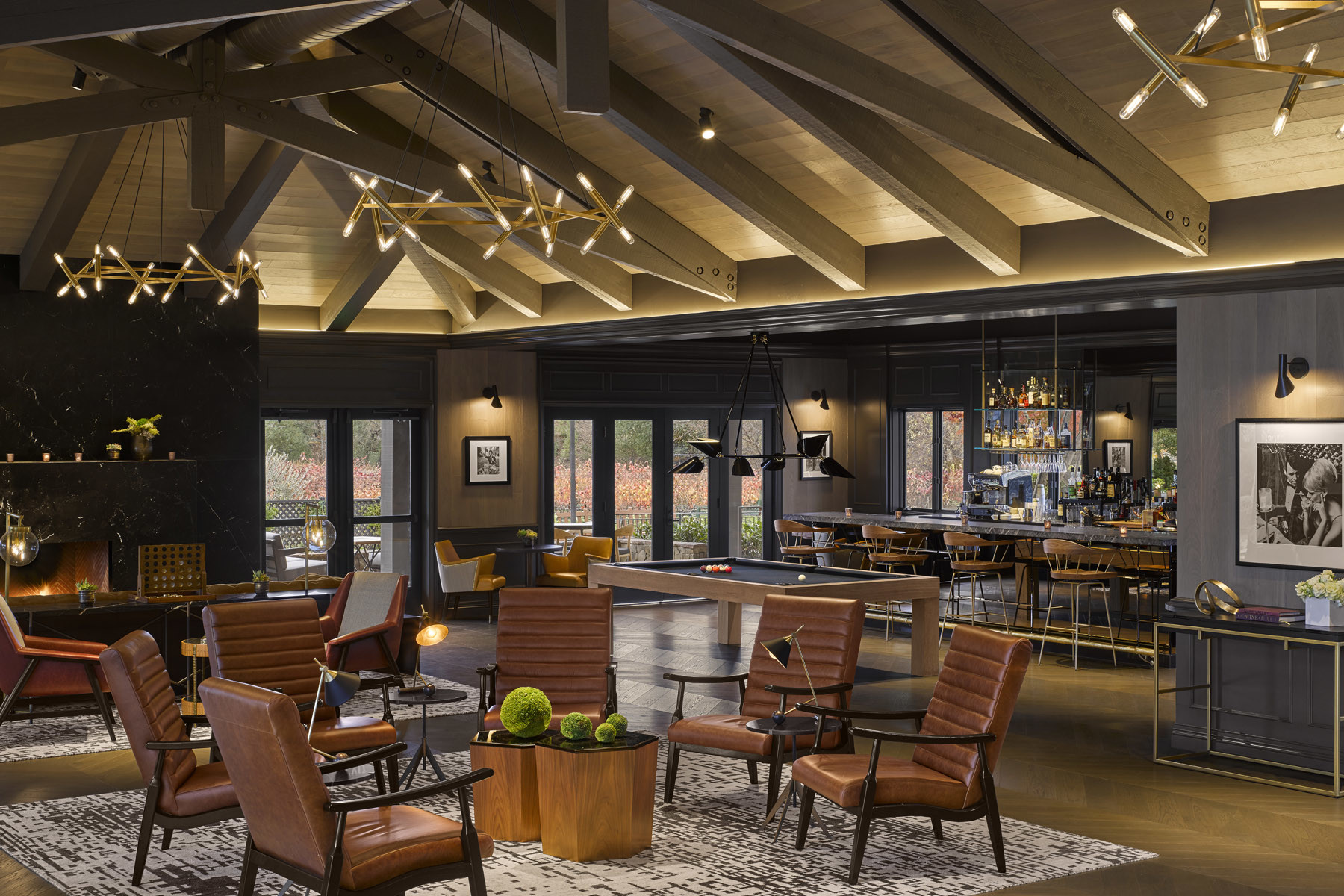
Transformational Spaces - Hotel Villagio, Yountville, California
Hotel VillagioAs architects, we build flexibility into spaces to allow them the transform over time. Adaptable spaces that can easily covert to different uses are going to be key in the future of hospitality. We’re constantly revaluating and gaining a better understanding of the tools at our disposal, and sensory technology can be wielded effectively to define and differentiate space. Rather than dividing people by intrusive physical barriers, lighting can be a subtle alternative, working as a visual cue to the guest, highlighting occupied and dimming vacant space. It can also be utilized to indicate energy and excitement, which has the power to draw people to a location or make a certain area feel reserved. One of our current projects in Frisco, Texas, is being designed with a high level of technical innovation to serve as a benchmark for the future of the sport. Planned to be one of the largest conference hotels in the area, a 127,000-square-foot conference center has been designed to ebb and flow in size dependent on use.
The concept of ‘transformational’ can take on many forms. The continuous evolution of technology has allowed us to dream big and work within new parameters. We’re living in an experience economy. The increased appetite for localization shows no sign of slowing down, in Booking.com’s 2020 ‘Travel Predictions’ survey, they reported that 61% of travelers were planning trips based on the journey rather than the destination.
At SB Architects, we placed focus on utilizing the existing infrastructure of the western railways to create the Infinite Explorer, a one-of-a-kind hospitality experience, in form of a hyper-luxury sleeper train with hotel-style facilities that makes planned stops as remote, bucket-list worthy locations on the way.
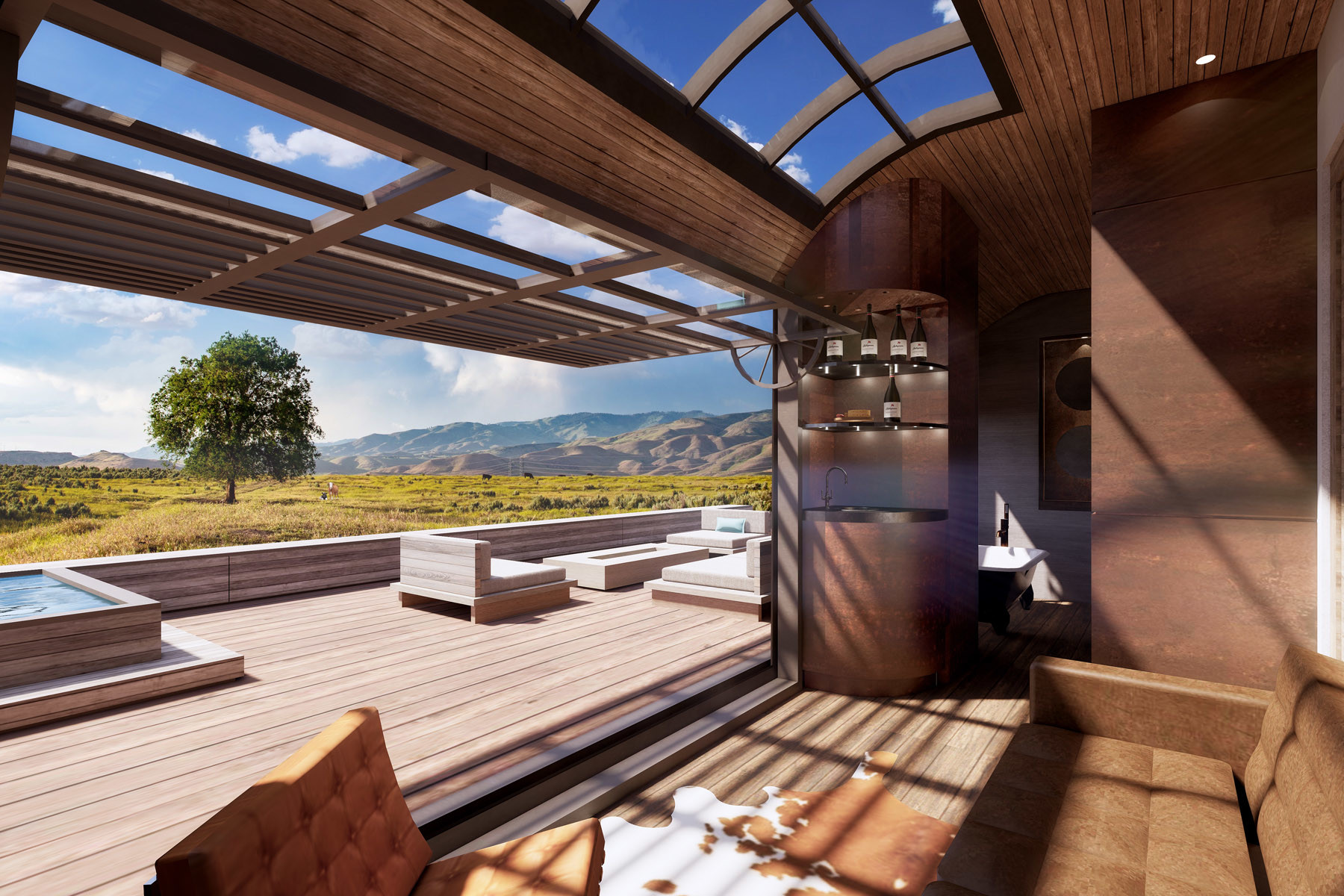
At these natural venues, the private train cars would open up, allowing guests to step from their cabin onto the experiential platforms located along the route. Every platform will be designed with an immersive program of activity, including outdoor adventures, wellness, and dining. The design minimizes the environmental impact and footprint, because the train is the hotel, and the primary amenity is nature.
Redefining train travel, the Infinite Explorer has the capability to keep the guest connected, provide the ultimate in luxury service, and create a memorable experience that taps into the consumer’s need for escape and adventure.
Authored by Bruce Wright, Senior Vice President, and Principal, SB Architects.
Originally created for and published on Hotel Executive as ‘The New Elements of Hotel Design in a Hi-Tech World.’




